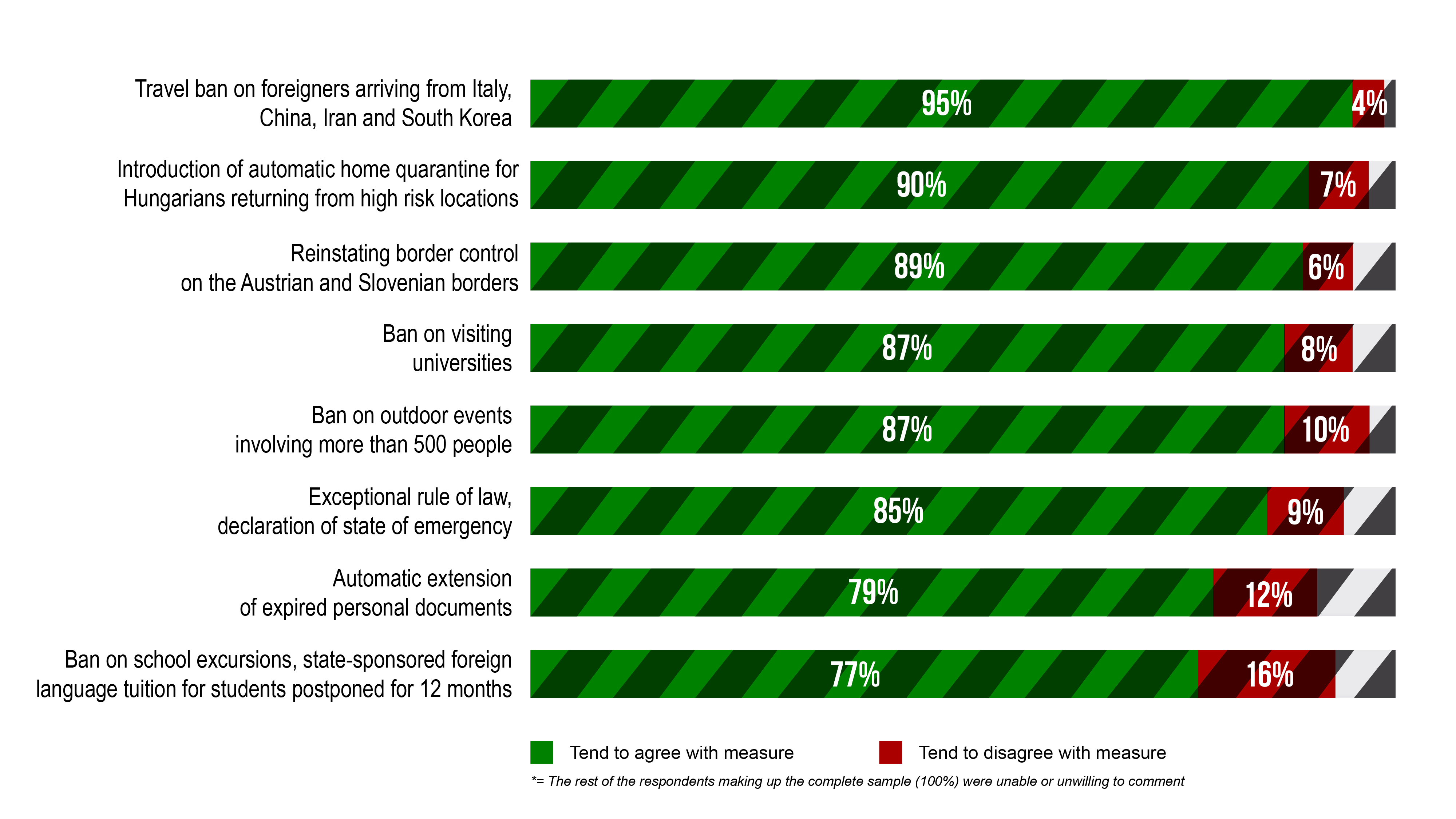Highest risk 60+ age group is the most satisfied with coronavirus containment measures
Everyone is aware of the coronavirus – it is unprecedented in public agenda research that 100 percent of Hungarians claim to have heard of it and 85 percent have also discussed it in recent days. In peaceful times even the weather – a classic conversation topic – would not produce such numbers.
However, since the declaration of a state of emergency, peaceful times have been replaced by a special rule of law applicable in such situation. There is almost complete social consensus on this measure: 85 percent of Hungarians agree with the introduction, and only 9 percent consider it a poor decision.
Along with consensus, satisfaction is also crucial in an unprecedented emergency. 70 percent of respondents are satisfied with government measures against the coronavirus, and it is particularly important that the support rate is even higher in the most vulnerable 60+ age group at 77 percent. Interestingly, 43 percent of those who say they are critical of the government are satisfied with the decisions of the cabinet (49 percent are not).
69 percent of Hungarians are satisfied with the strictness of the measures, while 22 percent expect even more stringent steps than those taken by March 12 (online teaching had not yet been launched at that stage). Support for additional measures introduced since may presumably be higher than the measured values.

The ban on entry from Italy and Southeast Asia has produced the widest consensus with 95 percent of Hungarians agreeing with the measure, but the automatic “home quarantine” for returning Hungarian citizens has also been welcomed by 90 percent of respondents. The ban on school excursions, postponement of state-sponsored foreign language tuition and the extension of the expiry date of personal documents have received the least support, but even this adds up to four-fifth (77 percent) of all respondents. Dissension, often the case among Hungarians, has been put aside due to the emergency.
The pandemic will certainly have an impact on domestic affairs as well. Failure to understand that the war on the virus demands cooperation and the suspension of political battles and distrust, can easily become a political loser. The split of the opposition voting camp on government measures is a warning sign to opposition leaders.
Distribution of party preferences in mid-March has been the same since January. 51 percent of active voters would vote for the governing party alliance, while Momentum stands at 13, DK and Jobbik at 10, the Two-Tailed Dog Party at 5, the MSZP at 4 (including Dialogue at 5), the LMP at 3, and Our Hungary at 2 percent.

Methodology
The poll was conducted by Nézőpont Intézet between 12-14 March 2020 involving telephone interviews with 1,000 respondents. The sample is representative of the 18+ population by gender, age, region, type of settlement and education level. A sample of 1,000 respondents at 95 percent accuracy has a 3.16 percent margin of error.
